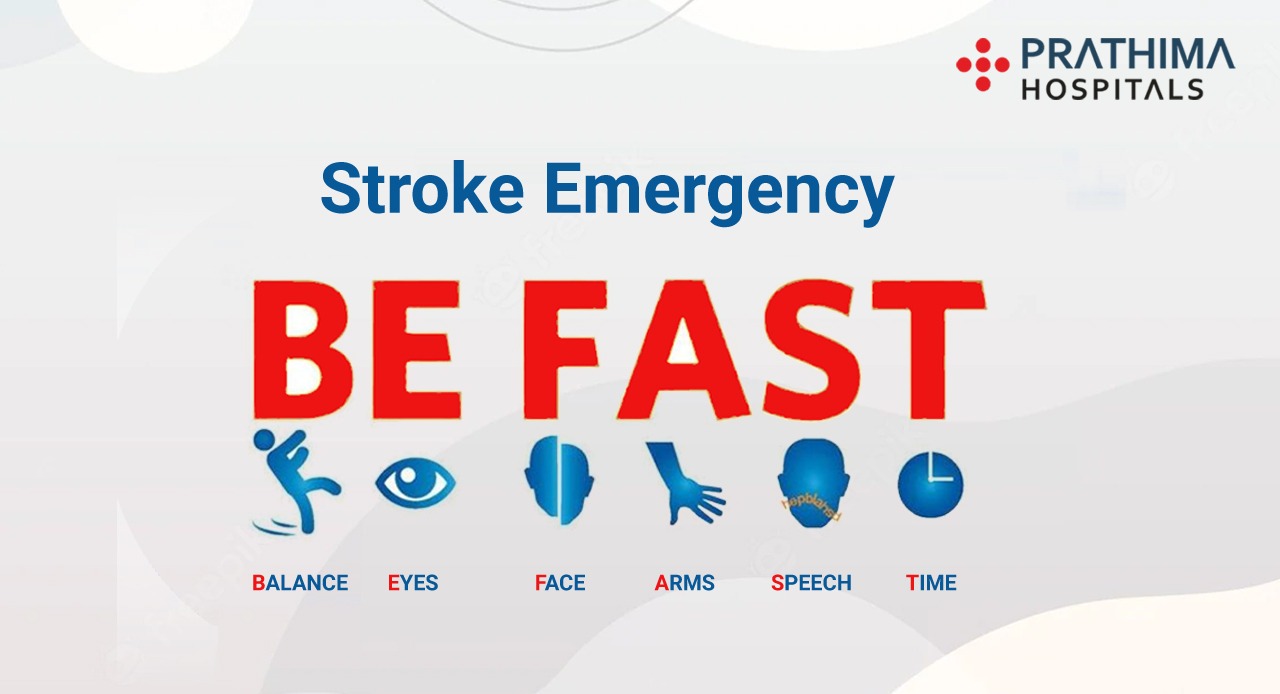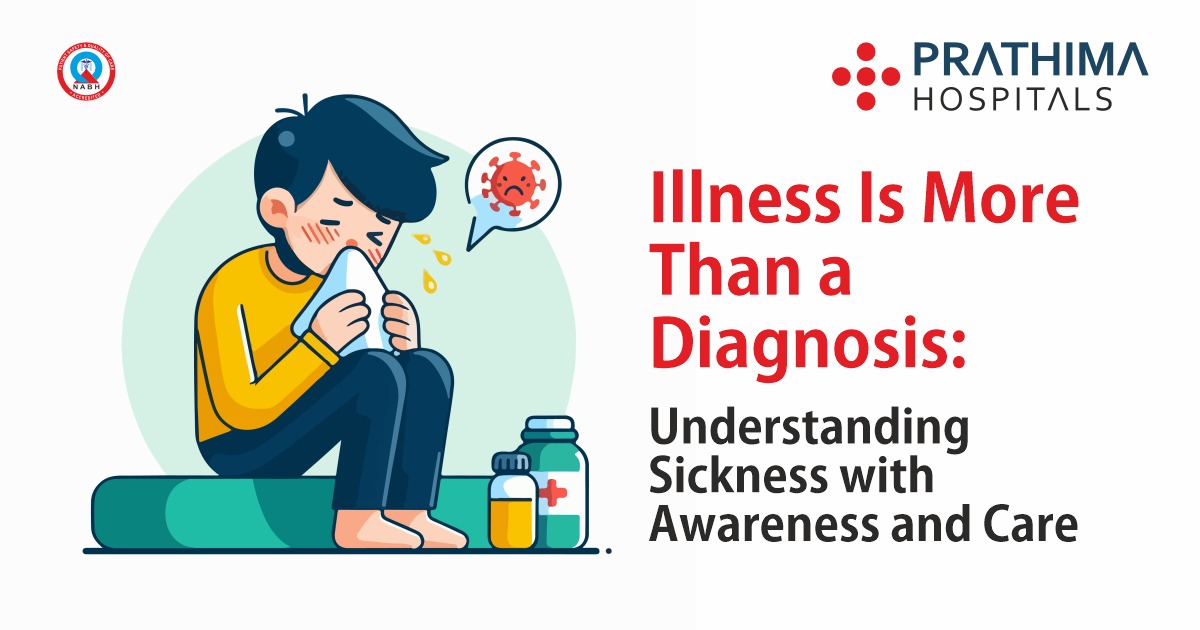Stroke – Emergency : BE FAST

One of the leading causes of high morbidity and mortality worldwide is stroke. According to World Health Organization guidelines, a stroke is characterized by rapidly emerging clinical symptoms of a localized, occasionally widespread disruption of brain function that lasts for more than 24 hours or results in death with no other obvious explanation than a vascular origin. Although cerebral blood vessel disorders and the associated infarcts and hemorrhages primarily affect the elderly, young people are also susceptible. Treatment for stroke differs based on age factors and other comorbidities. Neurologist in Hyderabad.
The following are several types of strokes.
- Ischemic stroke, which accounts for 87% of all instances, is the most prevalent kind of stroke. A portion of the brain cannot receive blood or oxygen because of a blood clot.
- A blood vessel bursts to cause a hemorrhagic stroke. These are frequently caused by aneurysms or venous abnormalities.
- Transient ischemic attack: This happens when there is a temporary reduction in blood supply to a specific area of the brain. After a brief period of time, normal blood flow returns, and the symptoms go away on their own.

Causes of stroke:
- Cardiovascular disease
- Inactive life
- Smoking
- Obesity
- Age especially in elder people
- Hypertension
- Diabetes
- Alcohol
Stroke symptoms and signs:
The following are stroke symptoms and signs:
- Coma
- Difficulty speaking or understanding speech – numbness or paralysis in the arm, face, or leg, especially on one side of the body
- Uncertainty
- Speaking slurred
- Visual issues, such as double vision, blacked-out vision, or difficulty seeing in one or both eyes.
- Difficulty walking
- Loss of coordination or balance – lightheadedness
- A sudden, intense headache
- Dizziness or sickness
- Pain – hallucination
- Overall exhaustion or weakness – a loss of consciousness or a fainting spell
- Seizure
- A lack of clarity, disorientation, or reactivity
- Abrupt behavioural alterations, particularly a rise in agitation
Stroke diagnosis:
Treatment for stroke majorly happens with the following examination could be useful:
- CT scan, or computed tomography X-rays are used in a brain CT scan to produce images of your brain.
- Magnetic resonance imaging (MRI) a mind MRI scans your brain using radio waves and magnets to produce images.
- Carotid angiography or carotid ultrasonography exhibit the interior of the arteries supplying the brain with blood.
- Echocardiography This test may be able to identify the origin of blood clots that have made their way from your heart to your brain by using sound waves to make images of your heart.
- Blood analysis to look for blood clots.
Treatment for stroke should include eating a balanced diet, monitoring your weight, quitting smoking, and refraining from using stimulant substances for fun. Best Neuro Hospital in Hyderabad.
- Keeping one’s weight in check
- Engaging in adequate exercise
- Managing diabetes – Keeping blood pressure under control You’ll be given certain antiplatelet and anticoagulant medications by your doctor.
Stroke prevention:
Keep in mind these 5 s:
- Sudden numbness and deformity, often on one side of the body, of the face, arm, or leg.
- Sudden communication or understanding difficulties. speech that could be slurred or unclear.
- A sudden problem with vision in one or both eyes.
- Sudden and severe headache without warning; severe dizziness; or sudden loss of balance, coordination, or ability to walk
If you see any of these symptoms, call your doctor right away. Neurologist in Kachiguda.
Contact Prathima Hospital to book an appointment with best neurophysician in kukatpally. We have neuro specialists in kukatpally and kachiguda.
Why is Prathima Hospital unique?
Numerous tests are offered by our neurophysiology section, including electrophysiological studies, EEG, nerve conduction studies, CT scans, and MRI scans. In the hospital, investigations like CT and MRI scans are available at all times.
Stroke, dementia, epilepsy, Parkinsonism, Amyotrophic Lateral Sclerosis (ALS), multiple sclerosis, and Alzheimer’s disease are among the major conditions treated. Neurologist in Kphb.
- Neuromuscular conditions – Tourette’s syndrome
- Congenital spine disorders
Treatment for Stroke – Assurance & Facilities
- Experience managing epilepsy, combined heart attack, brain stroke attack , and neuralgias. – Expertise in stroke management during the “golden hour” (thrombolysis-clot lysis).
- 24-hour trauma care services provided by ICUs – Management of all tumour types, spinal conditions, and hemorrhagic strokes
- State-of-the-art EEG and ENMG lab; – Skilled combination procedures for the carotid and coronary arteries; – Extended MRI and CT scans available around-the-clock;
- An operational microscope, high-speed drills, a C-arm, and micro-instruments are available in the OT.






Warning: Undefined variable $req in /home/u885608126/domains/prathimahospitals.com/public_html/wp-content/themes/prathimahospitals/functions.php on line 294
Warning: Undefined variable $commenter in /home/u885608126/domains/prathimahospitals.com/public_html/wp-content/themes/prathimahospitals/functions.php on line 295
Warning: Trying to access array offset on value of type null in /home/u885608126/domains/prathimahospitals.com/public_html/wp-content/themes/prathimahospitals/functions.php on line 295
Warning: Undefined variable $aria_req in /home/u885608126/domains/prathimahospitals.com/public_html/wp-content/themes/prathimahospitals/functions.php on line 295
Warning: Undefined variable $req in /home/u885608126/domains/prathimahospitals.com/public_html/wp-content/themes/prathimahospitals/functions.php on line 298
Warning: Undefined variable $commenter in /home/u885608126/domains/prathimahospitals.com/public_html/wp-content/themes/prathimahospitals/functions.php on line 299
Warning: Trying to access array offset on value of type null in /home/u885608126/domains/prathimahospitals.com/public_html/wp-content/themes/prathimahospitals/functions.php on line 299
Warning: Undefined variable $aria_req in /home/u885608126/domains/prathimahospitals.com/public_html/wp-content/themes/prathimahospitals/functions.php on line 300
Warning: Undefined variable $commenter in /home/u885608126/domains/prathimahospitals.com/public_html/wp-content/themes/prathimahospitals/functions.php on line 303
Warning: Trying to access array offset on value of type null in /home/u885608126/domains/prathimahospitals.com/public_html/wp-content/themes/prathimahospitals/functions.php on line 303